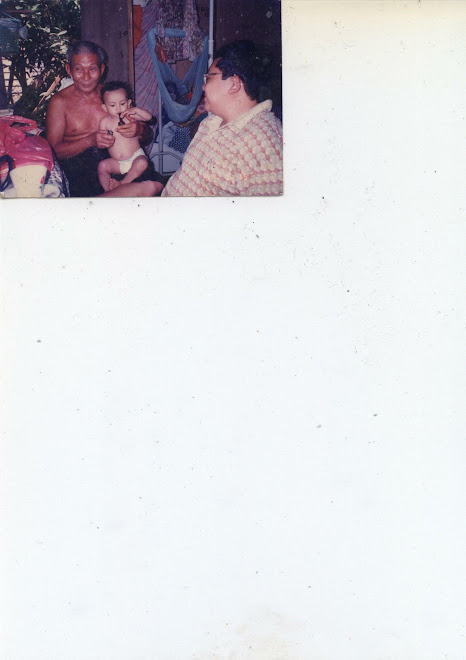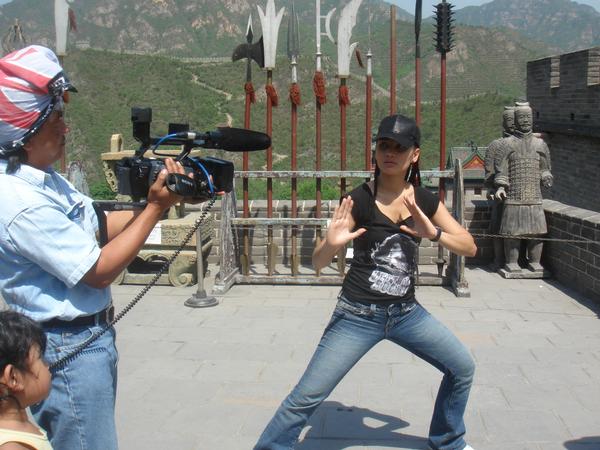

(Remembering Imam Mahdi (PBUH): An important responsibility)
Our responsibilities duringthe major occultation (Ghaibat) of Imam Mahdi (PBUH) have been dealt with in great detail in the book,'Mikyalul Makarem Fi Favaidid Dua lil Qaem' byAyatollah Mohammad Taqi Musawi Isfahani . He has highlighted the responsibilities in the second volume of the book.
Just by looking at the responsibilities outlined in the book it should be clear to the reader that fulfilling these duties is beneficial to us and forsaking them is detrimental to our interests. We realize that executing these responsibilities is proof of our love and attachment for Imam (PBUH). Performance of action is an important indication of strength of faith. Moreover, it makes one successful in this world and the hereafter. We will discuss one important responsibility, which is fairly easy to observe and very beneficial. The duty is remembering Imam (PBUH) and reminding others about him (PBUH). This responsibility can be accomplished individually as well as socially.
The first step in fulfilling this duty is toincrease our love towards Ahle Bait (PBUH). Books are laden with traditions regarding the love of Ahle Bait (PBUH). Here, we will outline three traditions dealing with the topic.
1. Imam Jafar Sadiq (PBUH) says:
'Surely for every act of worship, there is another superior to it and the love of us - Ahle Bait - is the most superior act of worship.'
(Behaarul Anwaar, vol. 27, pg. 91, trad. 148)
We are thankful to Allah that we were born in a family where the love of Ahle Bait (PBUH) was continuously infused in our hearts, just as food and water was constantly fed into our bodies.
2. The standard for perfect faith and glad tidings on the Day of Judgment is the love of Imam Mahdi (PBUH). The Holy Prophet (PBUH) declared:
'(If one wishes) to have perfect faith and desires that his Islam is best, then he should love Imam Mahdi (PBUH). Whoever loves those (Imams) and accepts their mastership, then I take guarantee from Allah, the High, for Paradise.'
(Behaarul Anwar, vol. 36, pg. 296)
The only way to increase the love of Ahle Bait (PBUH) is
their remembrance. An important benefit of this remembrance is that we will be safe from the assaults of Satan. A great scholar used to explain to his students that Satan is smarter than we are. He has promised Allah that he will deviate the progeny of Adam (PBUH). To achieve his aim he employs various tactics to deviate us. The easiest and the most successful way to save ourselves from his deceit is put the shield of remembrance of Ahle Bait (PBUH) between ourselves and Satan. We find a similar concept in traditions as explained by the scholar to his students. Satan stays away from those who are busy in the remembrance of Ahle Bait (PBUH).
3. Imam Sadiq (PBUH) said to his famous companion, Dawood bin Sarhan:
'O Dawood, give my salutations to my Shias and convey my message to them that when two persons meet and discuss our traditions then Allah's mercy is on both of them. The third between them is an angel who seeks forgiveness for them. No two persons meet and discuss about us but Allah prides Himself on this fact among His angels. (I order you) whenever you meet keep yourself busy in our remembrance. This remembrance enlivens our affairs. The best people after us are those who narrate our traditions and invite people towards them.'
(Behaarul Anwaar, vol. 1, pg. 200)
Imam (PBUH) in this brief tradition has conveyed some important points:
1. Whenever two persons discuss the traditions of the Holy Infallibles (PBUH), the third entity among them is an angel and not Satan.
2. The angel seeks forgiveness for all persons participating in the discussion. It is quite possible that our repentance is not accepted by Allah, but the supplications of angels are always accepted.
3. The holy Infallible Imam (PBUH) is constantly praying for Allah's mercy for all these persons who discuss the traditions.
4. Imam Ja’far Sadiq (PBUH) has ordered us to gather and discuss traditions of the Ahle Bait (PBUH).
5. When their traditions are discussed, the affairs of the holy Infallibles (PBUH) are enlivened.
6. Allah, the Almighty, prides over such gatherings.
7. Such people will be enumerated among the best people.
There is another incident about the significance of remembering Imam Mahdi (PBUH). Once an old person fromSyria came to Imam Ja’far Sadiq (PBUH). He saluted Imam (PBUH), kissed his hand and started crying. Imam (PBUH) consoled him and asked him the reason for crying. He said: O master! After the incident of Karbala, every day I have been anticipating that maybe today or tomorrow, this week or the next week, this month or the next month, this year or the next year, an individual from the progeny of Imam Hosein (PBUH) will rise and avenge his blood. But I do not see any sign of this (rising) in you.' After hearing this, Imam (PBUH) cried even more than the old man and said: O old man, I am not that individual (who is to rise) but he is the last from us, Hujjat bin Hasan Askari (PBUH). As you have his love in your heart and you await him, even if you die before his reappearance he will raise you from your grave.
(Muntahal Aamaal, Shaykh Abbas-e-Qummi)
According to reliable traditions,our deeds are presented to Imam(PBUH) twice a week. When he (PBUH) glances at our bad deeds he (PBUH) cries intensely and supplicates to Allah that their (Shias) hearts are filled with the love of my ancestors (PBUH), therefore forgive their sins.
Let’s resolve that from today, we will perform certain recommended acts to remember Imam (PBUH) and through it, we will save ourselves from the attacks of Satan. With this we will include ourselves amongst those people for whom the angels seek forgiveness and Allah prides over them. In this manner we will be under Allah's perpetual mercy and will be included among the true lovers of Imam Husain (PBUH) and not be the cause of Imam's (PBUH) sorrow and grief.
1. To reciteDua Ahad after every Morning Prayer. It is narrated from Imam Ja’far Sadiq (PBUH) that one who recites Dua Ahad for forty mornings then he will be included among the companions and helpers of Imam (PBUH) at the time of his (PBUH) reappearance. If he dies before Imam's (PBUH) reappearance, he (PBUH) will raise him from his grave. We remember Imam (PBUH) in this Dua (Supplication) with these beautiful words:
'They (enemies) perceive your reappearance as distant but we consider it as near.'
'O my Allah, if death comes between me and him (Imam (PBUH)), which you have decreed as a certainty for your servants, then raise me from my grave, enshrouded, my sword uncovered, wielding a naked spear answering to the call of the caller in cities as well as deserts!'
This supplication can be found in Mafateehul Jinaan.
2. Every Friday morning to organize an assembly forDua Nudba in the house and/or in the locality. Nudba means intense wailing. In this supplication, the lovers of Imam Hosein (PBUH) in the condition of waiting asks:
'Where is the one who will take the revenge of the blood of the martyrs ofKarbala?'
'I wish I had known where you are living!'
'May my life be sacrificed for you, you are the desire of every believing man and woman who has remembered you and sympathized with you.'
This supplication can also be found in Mafateehul Jinaan.
3. To organize gatherings and assemblies wherein Imam (PBUH) is remembered. Enliven the hearts of your children and believers. It is narrated in traditions that hearts are enlivened with the remembrance of Imam (PBUH) and sins are forgiven. The hearts will remain alive on that Day when all other hearts will be dead. For more details, refer Behaarul Anwaar, vol. 1, pg. 200.
4. Read and narrate the incidents of people who have met Imam (PBUH) so that the desire and love of meeting Imam (PBUH) is revived in the hearts. A lover of Imam (PBUH) has stated beautifully:
'We desire to see you but this journey is not possible. If we are unable to reach you, then you only come to us.'
As it is commanded in the last verse of Sura Aal-e-Imran, 'And be in contact’ Imam Ja’far Sadiq (PBUH) says:
'Be in contact with your Imam, the Awaited One'. Day and night whenever you get the time be in contact with your Imam (PBUH).
'And be in contact’ in occultation means to always remember Imam (PBUH), to seekmediation (tawaasul) through him (PBUH) and to seek solution of all our problems through him (PBUH) only.
6. Shaikh Abu Amr has narrated'Dua Ghaibat' from Imam (PBUH). This supplication should be recited on Friday. Sheikh Abbas Qumi has narrated in his book, 'Muntahal Aamaal' that even if no recommended action is performed on Friday then at least one should read this supplication and should never abandon it as it is prayed to have perfect belief in Imam (PBUH) in the period of occultation.
This supplication can be found in Mafateehul Jinaan.
7. Before performing any action we must think whether Imam (PBUH) will be pleased with it or not?
Allah, by the right of Lady Zahra fill our hearts with the love of Imam (PBUH) and give us the Chance to remember him (PBUH) and make others remember him (PBUH).
8. In the month of Muharram or even otherwise, whenever we cry for the martyrs of Karbala and the prisoners of Ahle Bait (PBUH), we should offer our condolences to the one who will avenge the blood of Imam Hosein (PBUH) and we should pray for his earliest reappearance.
9. We must celebrate the birthday of Imam (PBUH) on 15th Sha’ban in such a way that people inquire about the occasion. Apart from reciting verses in praise of Imam (PBUH), we should organize other programs so that people can increase theirrecognition (marefat) of Imam (PBUH) and attain proximity towards him (PBUH).
(Mahdi (AS) in Different Ahatith)
(Traditions)
The Views of Muhyi-ad Din Ibn Arabi on the Infallibility of Imam Mahdi (AS):
Ibn Arabi in his works "Futuhat Al-Makkiya" (The Meccan Revelations) says: "Mahdi (AS), during his time is the sign of Allah for the people of the world. His position is like that of the Prophets' (Peace Be Upon Them) which is sometimes also possible for others to share."
In the Glorious Qur'an, Allah tells His Prophet (SAW): "Say, `this is my path. With sure knowledge, I call on you to have faith in Allah, I and my followers." (12:108)
Mahdi (AS) is a follower of the Messenger. Therefore, just as the Messenger's invitation (to Islam) is free from any doubts an0d errors, the one who follows him is free from errors too. Rather, he treads the same path. Thus the Prophet (SAW) has said in this regard: "He treads on my path and is free from error."
And this is the same position of infallibility inviting towards the way of Allah.... (Ibn Arabi, "Futuhat Al-Makiyya" - vol. 3, p. 332)
Elsewhere in the same book, he writes: "The very being of Mahdi (AS) is Mercy, just as the being of the Prophet (SAW) was Mercy."
In the Qur'an, Allah says: "We have not sent you forth but as a Mercy to mankind." (21:107)
Ibn Arabi further states: "Except for Mahdi (AS), the Prophet (SAW) has not said so explicitly for any of the other Imams as he has said of Mahdi (AS) that would come after him and would continue his mission and would do so impeccably." This proves that in stating the Divine decrees, Mahdi (AS) is infallible. And of course sound reasoning (based on various historical and metaphysical proofs) testifies that the Prophet (SAW) of Allah was infallible in conveying this message." (Ibid., pp. 337-338)
In his book "Kamal ad-Din wa Tamam an-Ne'ma" - Sheikh Saduq quotes Imam Muhammad Baqir (AS) as saying: "The knowledge of Allah's Book and Prophet's (SAW) Tradition has blossomed in the heart of our Mahdi (AS) like a perfect plant. Should anyone of you meet him, tell him "Greetings on you, the household of Mercy and Prophethood and the Fountain of Knowledge and Heir to the Messenger of Truth." (Kamal al-Din wa Tamam al-Ne'mah, vol. 2, p. 653)
Those who are critics of the ideology of Al-Mahdi (AS), the Awaited One, mainly raise two questions:
a) How can it be possible for any man to live so long?
b) How can a child who has not yet reached maturity attain to the position of Imamate?
That this long a span of life is not in the least impossible. Very often we come across ordinary people who have very long life spans. Even regarding Prophet Noah (PBUH), the Qur'an says: "We sent forth Noah to his people, and he dwelt amongst them for one thousand years, less fifty." (29:14)
Even today science agrees that if a human being lives far off from the pressures and stress of the hustle bustle of a hectic city life, it would be possible for him to live a long and healthy life for hundreds of years without any anxieties and illness.
According to medical and social scientists, the automated and mechanized life of today's electronic age, limits the physical activities of human beings and is thus responsible for shortening his span of life. (Al-Najjar Abdul Wahhab, "Qisas al-Anbiyya, p. 98) Physicians believe that untimely deaths of people in advanced societies are due to abnormal diseases that afflict them.
Thus, if an individual takes good care and gives due attention to his health, it would be quite possible for him to live a reality life for centuries. Wouldn't this especially be possible for great and noble human beings who are completely under the protection of the Almighty Allah?
Allah states in the Qur'an regarding Prophet Yunus (PBUH):
"A whale swallowed him, for he had some amiss; and had he not devoutly praised Allah, he would have stayed in its belly till the Day of Resurrection. We threw him gravely ill upon a desolate shore and caused a gourd tree to grow over him. Thus, we sent him to a hundred thousand strong or more. They believed in him and we let them live in ease awhile." (37:142-148)
Regarding Prophet Isa (PBUH) Allah says:
"Those that disagreed about him were in doubt concerning him, for what they knew about it was a sheer conjecture; they didn't kill him for certain. Allah lifted him up to Him; He is Mighty, Wise. There is none among the People of the Book but will believe in him before his death; and on the Day of Resurrection he will be a witness against them." (4:158-159)
The above-mentioned verses prove that death has not yet overtaken Prophet Isa (PBUH) and that his death will take place after descending from the heavens at the time of the re-appearance of Mahdi (AS), the promised.
The Prophet (SAW) has been quoted as saying: "Isa (PBUH) the Son of Mary is not dead. Rather, before the Day of Resurrection, he will come back to you."
The late Allama Tabarsi says that the Prophet (SAW) has been quoted as saying: "How will it be when Isa, Son of Mary descends among you, when your Imam Mahdi (AS) has risen from among you." (Al-Bukhari, Isma'il ibn Ibrahim, Sahih Al-Bukhari, vol. 4, p. 205. Abul-Hussain, Muslim ibn Al-Hajjaj, Sahih Al-Muslim, vol. 1, p. 94)
Coming to the second question regarding the validity of an underage Imam. We must say that when this same thing has been possible for many great Prophets (Peace Be Upon Them). Why would it not be possible for Imam Mahdi (AS)?
Allah says in the Qur'an regarding Prophet John (PBUH):
"O Yahya, hold fast to the Book. We bestowed on him wisdom while he was a child." (19:12) Similarly it is recorded thus in the Qur'an regarding Prophet Isa (PBUH):
"She pointed to him. But they replied, `How can we speak with a baby in the cradle?' (Whereupon) he said: `I am the servant of Allah, He has given me the Book and made me a Prophet. He made me blessed wherever I go and He has commanded me to be steadfast in prayer and to give alms to the poor as long as I shall live.." (19:29-30)
Many traditions from the Prophet (SAW) regarding the importance of the need for existence of Imam Mahdi (AS) as well as knowledge regarding him have been quoted by great Sunni scholars. Some of these are as follows:
-- "Anyone who dies without knowing his Imam-e Zaman has died in ignorance."
-- "Anyone who dies and has not declared faith in an Imam, dies ignorant." (Ibn Hanbal Ahmad, Masnad-e-Ahmad, vol. 3, p. 446 and vol. 4, p. 96; Sahih al-Muslim, vol. 4, pp. 21-22; Abu Bakr Al-Bayhaqi Al-Sunan Al-Kubra, vol. 8, p. 156; Ibn Kathir, Tafsir al-Qur'an al-Azeem, vol. 1, p. 517; Allamah Amini, Al-Ghadeer, vol. 10, p. 359.
Many such traditions have been quoted often by Sunni scholars. Therefore, it could be considered incumbent on every good Muslim to follow his Imam-e Zaman, albeit an infallible Imam, who is free from errors and misjudgment.
Especially so since an Imam is an exemplar of the highest virtues and thus it would not be appropriate for him to be afflicted by errors and imperfections.
The Need for Intercession in Seeking Divine Grace:
A very important issue to refer to here is the need for intercession in seeking Divine Grace. We read in the Qur'an:
"O you who believe! Have fear of Allah and seek the means by which you get His favor." (5:35)
Elsewhere the Qur'an says:
"Those to whom they pray themselves seek to approach their Lord." (17:57)
Sheikh Saduq quotes Sulaiman ibn Ja'afar as saying: "I asked Imam Reza (AS). Will the earth ever be devoid of a sign of God?"
The Imam replied: "Even if that were to happen for as long as the blinking of an eye, the earth would cave in with all its inhabitants. " (Sheikh Saduq, "Uyun-e-Akbar al-Reza", pp. 150-151)
Elsewhere he quotes Imam Baqir (AS), saying: "If the earth would be devoid of an Imam from our Household for even a single day, it would swallow in all its inhabitants. And Allah would afflict the dwellers of the earth with a severe punishment. The Lord Almighty has appointed us as this sign and for the safety of the dwellers of the earth. As long as we live among them, those who would otherwise be swallowed into the earth are in safety." (Sheikh Saduq, Kamal ad-Din wa Tamam an-Ne'ma, pp. 150-151)
Thus, in the same way that these Imams are intercessors for the True Religion, they are also the intercessors for Grace and Earthly and Heavenly abundance for mankind.
Peace be with you all!!


























































































No comments:
Post a Comment